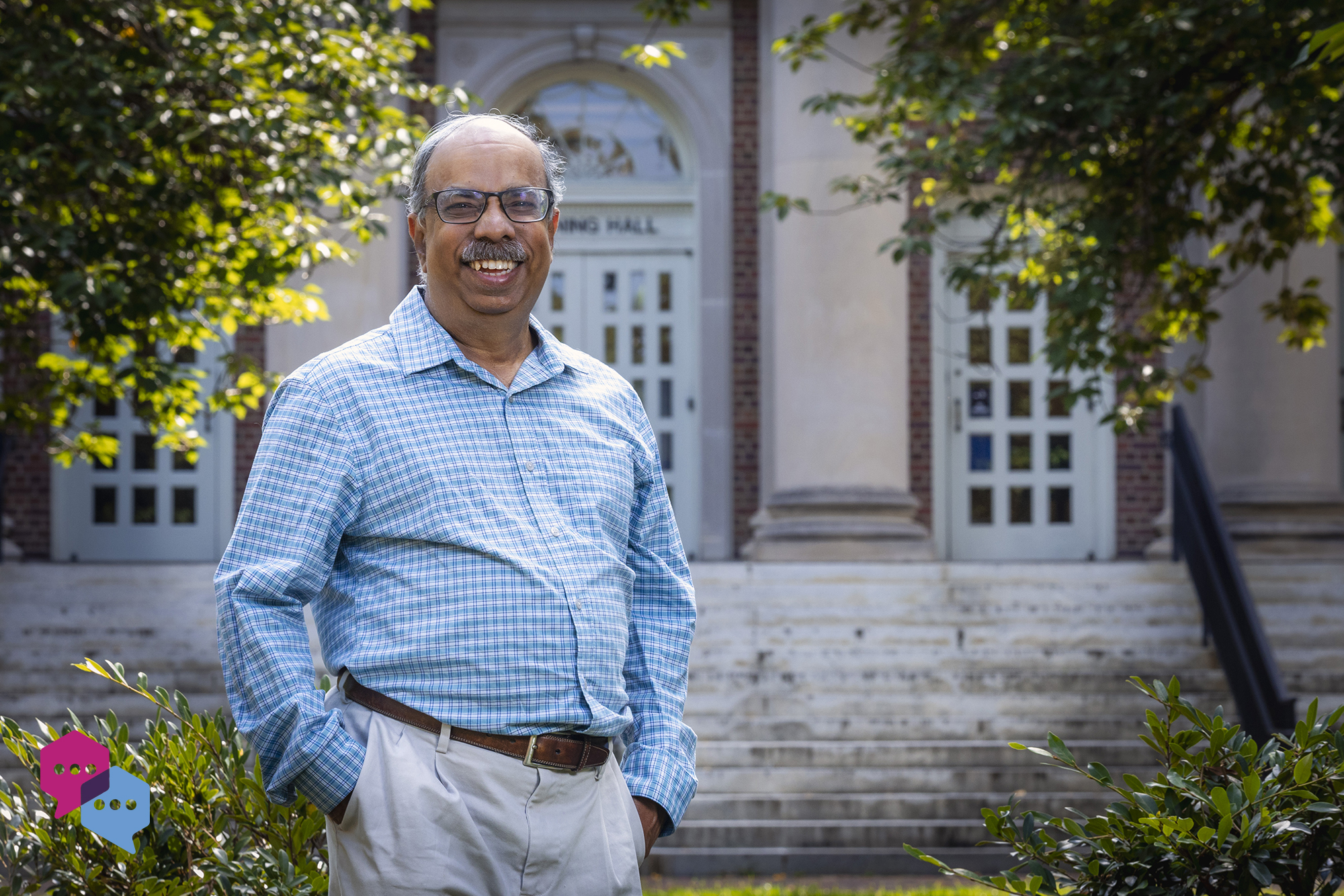Arcot “Raja” Rajasekar is a professor within the UNC School of Information and Library Science and the chief scientist at RENCI. He develops data grid middleware systems — software that connects application programs to their underlying hardware while ensuring they continue to work as expected even when that hardware changes.
Q: How did you discover your specific field of study?
A: Got data? It’s 11 p.m. — do you know where your files are? Some of them are possibly in multiple laptops and desktops, some in the university server, some in your smartphone, a lot in the cloud, and older files in external storage. Maybe even in CDs, DVDs, and tapes. Can you find a file that you wanted? Do you even remember the name of the file? Can you search in all the places? Do you remember the password? If you have these problems, you can see what scientists and engineers must face with their high-velocity data volumes.
I am a data architect. I started designing and developing large-scale systems more than 25 years ago to help multidisciplinary scientists get a handle on their exponentially growing data. At that time, I was working with the San Diego Supercomputer Center at the University of California at San Diego. We developed the world’s first data grid called the Storage Resource Broker (SRB), which enabled scientists to federate, manage, and share data across distributed resources and use metadata to search and find relevant data sets. At UNC-Chapel Hill, where I moved to about 15 years ago, we developed a second-generation data grid called the integrated Rule Oriented Data Systems (iRODS) that is used by several large projects and organizations across the world.
Q: Academics are problem-solvers. Describe a research challenge you’ve faced and how you overcame it.
A: When SRB became a successful product, many of our users wanted different types of extensions and specific functionalities that were pertinent to their domain. We also saw many users doing a lot of processing of data outside SRB and felt that if we could allow them to do it inside the SRB, they could be able to automate all their data processing within one framework. That inspired us to develop iRODS as a rule-oriented system where any user or group could write their own rules to tailor data management chains for their specific needs and policies.
Q: Describe your research in five words.
A: Data: the new world currency.
Q: Who or what inspires you? Why?
A: Professor Jack Minker at the University of Maryland, who guided me through my PhD and was a mentor long after that, and Professor Reagan Moore, an esteemed colleague who retired from UNC-Chapel Hill. Professor Minker taught me about being very careful and diligent in my research. Professor Moore inspired me to be a problem-solver and an enabling technologist.
Q: If you could pursue any other career, what would it be and why?
A: I am happy with my profession — even in my childhood I wanted to do something with computers. So I’m not sure what would be an alternate career. Maybe a cyborg time-traveler.


